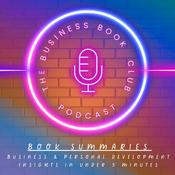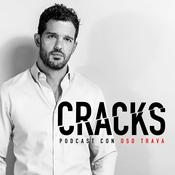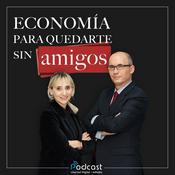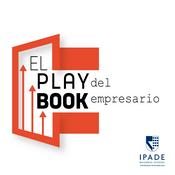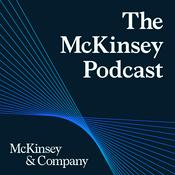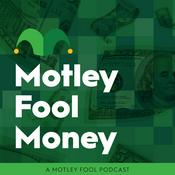The Rational Reminder Podcast
Benjamin Felix, Cameron Passmore, and Dan Bortolotti

Último episodio
419 episodios
Episode 397: Hendrik Bessembinder - Constant Leverage & Measuring Investor Outcomes
19/2/2026 | 1 h 5 minIn this episode, we welcome back return guest Hank Bessembinder for a deeply analytical conversation spanning leveraged ETFs, volatility, and the future of performance measurement. Hank walks us through his latest research on leveraged single-stock ETFs, clarifying the misunderstood concept of "volatility decay" and decomposing returns into rebalancing effects and frictions. The results are striking: meaningful underperformance relative to simple levered benchmarks, driven by both embedded costs and the mechanics of daily resets. In the second half, we shift gears to a more foundational question: What is a return, really? Hank challenges the dominance of arithmetic averages and even geometric means, arguing that neither truly captures the long-term investor experience. He introduces the concept of the sustainable return—a measure based on the cash flows an investment can support without depleting capital—and outlines how it could reshape academic finance and real-world financial planning.
Key Points From This Episode:
(0:01:03) Welcome back to Hank Bessembinder and overview of his recent research.
(0:06:16) What "volatility decay" really means—and why the term may be misleading.
(0:09:16) Why volatility does not necessarily reduce mean returns in constant leverage ETFs.
(0:10:11) Ex-ante decision-making and the wedge between mean and median outcomes.
(0:11:26) Single-stock vs. index leveraged ETFs: Similar mechanics, different magnitudes.
(0:12:52) Why past research has been so cautionary about long-term use of leveraged ETFs.
(0:15:53) How rebalancing costs differ for long and short leveraged products.
(0:16:57) The benchmark: Levered buy-and-hold versus constant daily rebalancing.
(0:19:46) Empirical results: Long funds underperform by ~0.8% per month; short funds by ~1% per month.
(0:21:10) Decomposing underperformance into rebalancing effects and frictions.
(0:24:15) The real (though rare) possibility of returns below –100% in leveraged products.
(0:27:04) Simulation results over 50 years: Skewness, negative medians, and rebalancing drag.
(0:28:38) Why volatility tends to coincide with reversals—and why reversals drive rebalancing costs.
(0:31:15) Practical guidance: Who, if anyone, should use leveraged single-stock ETFs.
(0:34:58) The limitations of arithmetic means and single-period models.
(0:36:55) Why aggregate investors are not buy-and-hold investors.
(0:39:17) The shortcomings of arithmetic averages, alphas, and Sharpe ratios for long-horizon measurement.
(0:42:38) Why log returns don't solve the core measurement problems.
(0:44:56) The case for dollar-weighted returns and the limitations of IRRs.
(0:48:18) Modified IRRs and their role in capturing aggregate investor outcomes.
(0:50:14) Introducing the sustainable return: Measuring what can be withdrawn without depleting capital.
(0:53:22) Expected sustainable return and its close relationship to the geometric mean.
(0:56:09) Proportional sustainable return and withdrawal-based performance measurement.
(1:00:00) Individual stock returns through the lens of sustainable returns.
(1:00:53) Nudging academic finance beyond the "econometric streetlight."
Links From Today's Episode:
Meet with PWL Capital: https://calendly.com/d/3vm-t2j-h3p
Rational Reminder on iTunes — https://itunes.apple.com/ca/podcast/the-rational-reminder-podcast/id1426530582.
Rational Reminder on Instagram — https://www.instagram.com/rationalreminder/
Rational Reminder on YouTube — https://www.youtube.com/channel/
Benjamin Felix — https://pwlcapital.com/our-team/
Benjamin on X — https://x.com/benjaminwfelix
Benjamin on LinkedIn — https://www.linkedin.com/in/benjaminwfelix/
Cameron Passmore — https://pwlcapital.com/our-team/
Cameron on X — https://x.com/CameronPassmore
Cameron on LinkedIn — https://www.linkedin.com/in/cameronpassmore/
Editing and post-production work for this episode was provided by The Podcast Consultant (https://thepodcastconsultant.com)- In this episode of the Rational Reminder Podcast, we are joined by Theresa Ebden, Vice President of the Investor Office at the Ontario Securities Commission, for a deep dive into how regulators are thinking about modern investor risks—from AI-powered scams to finfluencers and the gamification of investing apps. Theresa explains how the OSC works to protect investors through policy, education, behavioral research, and direct engagement with the public, and why investor education is one of the most powerful tools regulators have.
Key Points From This Episode:
(0:01:55) Overview of the OSC and why its investor research and education work matters.
(5:42) What the Ontario Securities Commission does and its mandate to protect investors and capital markets.
(6:25) Inside the OSC Investor Office: policy, education and outreach, and the investor contact centre.
(9:28) How the Investor Office identifies priority issues using inquiry data, behavioral insights, and global collaboration.
(12:11) The nature of investor inquiries: fraud, crypto confusion, complaints, and recovery room scams.
(14:01) How contact-centre data feeds into education, outreach, and policy responses.
(16:07) Overview of GetSmarterAboutMoney.ca and its role in investor education.
(20:43) Major retail investor risks today: AI-enhanced scams, finfluencers, dark patterns, and gamification.
(24:43) What to do if you're impersonated by AI in scam advertisements.
(29:28) What a "finfluencer" is and the different categories they fall into.
(31:01) Research findings on how strongly finfluencers influence investor decisions.
(32:55) Why non-investors are especially vulnerable to finfluencer advice and social-media scams.
(36:11) How investors can evaluate online financial advice and check credentials.
(38:02) Regulatory challenges in overseeing finfluencers and online financial content.
(41:04) How AI magnifies traditional scams and why AI-enhanced fraud is more effective.
(43:42) Mitigation strategies: education, just-in-time warnings, and system-level tools.
(47:25) Relationship investment scams and why they are especially damaging.
(52:53) Research on gamification in investing apps and its effects on investor behavior.
(55:25) The Get Smarter About Trading simulator and how it demonstrates gamification effects.
(57:19) How gamification can be used positively to improve diversification and outcomes.
(58:16) Theresa's perspective on success and her focus on improving the individual investor experience.
Links From Today's Episode:
Meet with PWL Capital: https://calendly.com/d/3vm-t2j-h3p
Rational Reminder on iTunes — https://itunes.apple.com/ca/podcast/the-rational-reminder-podcast/id1426530582.
Rational Reminder on Instagram — https://www.instagram.com/rationalreminder/
Rational Reminder on YouTube — https://www.youtube.com/channel/
Benjamin Felix — https://pwlcapital.com/our-team/
Benjamin on X — https://x.com/benjaminwfelix
Benjamin on LinkedIn — https://www.linkedin.com/in/benjaminwfelix/
Dan Bortolotti — https://pwlcapital.com/our-team/
Dan Bortolotti on LinkedIn — https://ca.linkedin.com/in/dan-bortolotti-8a482310
Editing and post-production work for this episode was provided by The Podcast Consultant (https://thepodcastconsultant.com) - Ben Felix and Braden Warwick are joined by Dr. Charles Chaffin, a leading voice in financial psychology, to explore why investors so often act against their own best interests—and how better tools and frameworks can help bridge the gap between rational plans and real human behavior. The conversation blends behavioral finance, goal setting, and risk profiling, while also introducing a new evidence-based risk tolerance questionnaire now being made publicly available to listeners. The episode digs into why humans are wired for short-term survival rather than long-term optimization, how biases and environment shape financial decisions, and why coaching—not transactions—is becoming the advisor's most important role. Charles explains concepts like money scripts, financial flashpoints, identity-based goals, and financial self-efficacy, tying them directly to investing behavior and client outcomes. The discussion also goes deep on financial risk tolerance: what it really is, why people consistently misjudge it, and why psychometric tools outperform traditional questionnaires.
Key Points From This Episode:
(0:00:00) Introduction to Episode 395 and guest Dr. Charles Chaffin
(0:01:15) Charles' background in financial planning psychology and authorship
(0:02:30) Why PWL wanted to move beyond the Grable–Lytton Risk Tolerance Scale
(0:03:40) Introduction to the Money and Risk Inventory (MRI) and full disclosure
(0:04:55) Announcement: Public access to a psychometric risk tolerance questionnaire
(0:05:10) Risk tolerance vs. risk capacity—and how PWL combines both
(0:06:43) Why firms must map risk scores to asset allocations themselves
(0:08:35) The role of psychology in financial planning beyond technical advice
(0:10:17) The Klontz–Chaffin model of financial psychology
(0:12:05) Why humans are "bad with money": survival brains and emotions
(0:13:30) How heuristics and biases derail long-term planning
(0:15:42) Tools for overcoming bias: automation, pre-commitment, and friction
(0:21:29) How environment and social context shape financial behavior
(0:26:38) Financial flashpoints and their lasting impact on risk tolerance
(0:29:35) Financial self-efficacy and why low confidence leads to avoidance
(0:36:01) Money scripts: avoidant, worship, status, and vigilant
(0:40:07) Why understanding your own money scripts matters
(0:41:19) Common behaviors that lead to poor financial outcomes
(0:42:59) Practical strategies for recognizing and mitigating bad behaviors
(0:48:22) The role of identity in goal setting
(0:50:07) Why goals matter for motivation and behavior alignment
(0:52:56) Intrinsic vs. extrinsic goals and self-determination theory
(0:58:26) When quitting a goal is the right decision
(1:00:26) What financial risk tolerance really is
(1:02:16) Why people consistently misjudge their own risk tolerance
(1:03:31) How stable risk tolerance is over time—and what changes it
(1:05:12) Why reassessing risk tolerance regularly improves outcomes
(1:06:05) Handling couples with mismatched risk profiles
(1:07:37) Psychometric vs. revealed-preference risk questionnaires
(1:09:30) Evidence showing psychometric tools better explain real risk-taking
(1:10:39) Where traditional risk tolerance questionnaires fall short
Links From Today's Episode:
PWL Risk Profile Tool — https://research-tools.pwlcapital.com/research/risk-profile
Meet with PWL Capital: https://calendly.com/d/3vm-t2j-h3p
Rational Reminder on iTunes — https://itunes.apple.com/ca/podcast/the-rational-reminder-podcast/id1426530582.
Rational Reminder on Instagram — https://www.instagram.com/rationalreminder/
Rational Reminder on YouTube — https://www.youtube.com/channel/
Benjamin Felix — https://pwlcapital.com/our-team/
Benjamin on X — https://x.com/benjaminwfelix
Benjamin on LinkedIn — https://www.linkedin.com/in/benjaminwfelix/
Editing and post-production work for this episode was provided by The Podcast Consultant (https://thepodcastconsultant.com) - Equal-weighted index funds sound like an elegant solution to some of today's biggest investor anxieties: high market concentration, elevated valuations, and outsized influence from a handful of mega-cap stocks. In this episode of the Rational Reminder Podcast, Ben Felix, Dan Bortolotti, and Ben Wilson take a deep, evidence-based look at whether equal weighting actually improves portfolios—or simply introduces new risks under a different name. The discussion breaks down how equal-weighted indices differ fundamentally from traditional market-cap-weighted indexes, why equal weighting has historically outperformed in certain periods, and what's really driving those results beneath the surface. The team explains how equal weighting tilts portfolios toward smaller, cheaper, and more volatile stocks, while also systematically trading against momentum due to frequent rebalancing.
Key Points From This Episode:
(0:01:10) Introduction to Episode 394 and discussion about declining enthusiasm over long podcast runs.
(0:02:00) PWL Capital's growing work with institutional clients and why index-based approaches are rare in that space.
(0:05:12) Episode topic introduced: equal-weighted index funds and why listeners keep asking about them.
(0:06:00) Definition of market-cap-weighted vs. equal-weighted indexes using the S&P 500 as the main example.
(0:07:14) Historical outperformance of equal-weighted S&P 500 indexes and why start dates matter.
(0:09:00) Equal weight vs. cap weight performance over the last decade: meaningful recent underperformance.
(0:10:21) Market concentration concerns and why equal weighting appears attractive during periods of high valuations.
(0:12:00) Why market-cap-weighted indexes do not mechanically buy more overvalued stocks as prices rise.
(0:16:14) Trading costs explained: explicit vs. implicit costs and why turnover matters more than TER.
(0:19:16) Capital gains, tax efficiency, and reporting differences between Canadian and U.S. funds.
(0:21:07) Market concentration historically shows little relationship with future returns.
(0:24:58) Volatility comparison: equal-weighted indexes are meaningfully more volatile due to small-cap exposure.
(0:25:12) Equal weighting increases exposure to small-cap, value, and high-volatility stocks.
(0:28:58) Sector distortions created by equal weighting and why this represents uncompensated risk.
(0:31:21) Unintended consequences: sector bets, security-level overweights, and forced rebalancing.
(0:32:30) Turnover is roughly 10× higher in equal-weighted funds than cap-weighted equivalents.
(0:33:15) Equal weighting behaves as a systematic anti-momentum strategy.
(0:34:02) Multi-factor regression results: positive size and value exposure, negative momentum loading.
(0:36:33) Rebalancing frequency trade-offs and how quarterly rebalancing amplifies momentum drag.
(0:42:21) Comparison with alternative approaches that target similar factor exposures more efficiently.
(0:44:47) Why backtests are seductive—and why live fund results matter more.
(0:47:40) Investor behavior, uncertainty, and the constant search for strategies that "fix" the market.
(0:48:41) Factor investing in disguise: most deviations from cap-weighting are just factor tilts.
(0:53:06) Equal weighting as an acceptable strategy—if investors understand and accept the trade-offs.
(0:57:18) Listener feedback, enthusiasm jokes, and discussion about Spotify video uploads and audio speed.
Links From Today's Episode:
Meet with PWL Capital: https://calendly.com/d/3vm-t2j-h3p
Rational Reminder on iTunes — https://itunes.apple.com/ca/podcast/the-rational-reminder-podcast/id1426530582.
Rational Reminder on Instagram — https://www.instagram.com/rationalreminder/
Rational Reminder on YouTube — https://www.youtube.com/channel/
Benjamin Felix — https://pwlcapital.com/our-team/
Benjamin on X — https://x.com/benjaminwfelix
Benjamin on LinkedIn — https://www.linkedin.com/in/benjaminwfelix/
Dan Bortolotti — https://pwlcapital.com/our-team/
Dan Bortolotti on LinkedIn — https://ca.linkedin.com/in/dan-bortolotti-8a482310
Ben Wilson on LinkedIn — https://www.linkedin.com/in/ben-wilson/
Editing and post-production work for this episode was provided by The Podcast Consultant (https://thepodcastconsultant.com) - What if financial planning were approached the same way engineers design aircraft, medical treatments, or complex systems—with clearly defined objectives, constraints, and rigorous trade-off analysis? In this episode, Benjamin Felix is joined by Braden Warwick for a deep dive into what it means to engineer financial outcomes. Drawing on Braden's background as a PhD-trained mechanical engineer and his work building financial planning software at PWL Capital, the conversation reframes financial planning as a design problem rather than a speculative exercise. They explore the critical distinction between a financial plan and a financial projection, why uncertainty does not invalidate good planning, and how professional communication under uncertainty can build trust with clients—especially those from technical backgrounds. The discussion highlights the importance of goals-based planning, sensitivity analysis, and explicitly quantifying trade-offs when clients have multiple competing objectives.
Key Points From This Episode:
(0:00:04) Introduction to Episode 393 and the return of Braden Warwick
(0:02:50) Braden's role at PWL and his experience deploying Conquest Planning software
(0:05:46) The tension between low industry entry barriers and professional standards in financial planning
(0:07:54) Braden's background in mechanical engineering and academia
0:09:33) Financial plans vs. financial projections: why uncertainty doesn't make a plan "wrong"
(0:12:59) Lessons from medicine and engineering on communicating decisions under uncertainty
(0:15:15) An engineering framework for financial planning: objectives first, then solutions
(0:18:42) Why surface-level goals like "minimize tax" or "maximize returns" often miss what really matters
(0:21:19) Evaluating plans against goals using projections, scenario analysis, and sensitivity analysis
(0:24:28) Why sensitivity analysis helps planners focus on what actually drives outcomes
(0:29:27) Handling multiple competing goals using trade-off analysis and Pareto frontiers
(0:36:46) Practical ways planners can present trade-offs without complex math
(0:39:25) Case study setup: professional financial planning with corporate clients
(0:40:20) Salary vs. dividends for business owners when optimizing for legacy goals
(0:44:26) Why financial planning software outputs can be misleading without context
(0:48:23) The importance of understanding how planning software calculates key metrics
(0:50:22) Using PWL's free retirement tool to analyze CPP and OAS timing decisions
(0:53:44) Approximating Monte Carlo outcomes using standard error of the mean
(0:56:16) Linking "bad" and "terrible" outcomes to plan success probabilities
(0:58:44) How CPP and OAS deferral affects sustainable spending and downside protection
(1:02:46) What makes PWL's CPP calculator different from typical break-even tools
(1:05:15) Why wage inflation assumptions materially affect CPP deferral decisions
(1:07:46) Closing framework: goals, constraints, sensitivity analysis, and quantified trade-offs
(1:09:36) Financial planning as an emerging discipline rooted in engineering-style thinking
Links From Today's Episode:
Live Webinar: How Much Do You Need to Retire in Canada? | Feb 12 @ 12NN EST | Register here — https://pages.pwlcapital.com/webinar-how-much-do-you-need-to-retire-in-canada?utm_source=rational%20reminder&utm_medium=rr_ep393&utm_campaign=webinar_retirement
Meet with PWL Capital: https://calendly.com/d/3vm-t2j-h3p
Rational Reminder on iTunes — https://itunes.apple.com/ca/podcast/the-rational-reminder-podcast/id1426530582.
Rational Reminder on Instagram — https://www.instagram.com/rationalreminder/
Rational Reminder on YouTube — https://www.youtube.com/channel/
Benjamin Felix — https://pwlcapital.com/our-team/
Benjamin on X — https://x.com/benjaminwfelix
Benjamin on LinkedIn — https://www.linkedin.com/in/benjaminwfelix/
Editing and post-production work for this episode was provided by The Podcast Consultant (https://thepodcastconsultant.com)
Más podcasts de Economía y empresa
Podcasts a la moda de Economía y empresa
Acerca de The Rational Reminder Podcast
A weekly reality check on sensible investing and financial decision-making, from three Canadians. Hosted by Benjamin Felix, Cameron Passmore, and Dan Bortolotti, Portfolio Managers at PWL Capital.
Sitio web del podcastEscucha The Rational Reminder Podcast, CREATIVO y muchos más podcasts de todo el mundo con la aplicación de radio.net

Descarga la app gratuita: radio.net
- Añadir radios y podcasts a favoritos
- Transmisión por Wi-Fi y Bluetooth
- Carplay & Android Auto compatible
- Muchas otras funciones de la app
Descarga la app gratuita: radio.net
- Añadir radios y podcasts a favoritos
- Transmisión por Wi-Fi y Bluetooth
- Carplay & Android Auto compatible
- Muchas otras funciones de la app


The Rational Reminder Podcast
Escanea el código,
Descarga la app,
Escucha.
Descarga la app,
Escucha.


